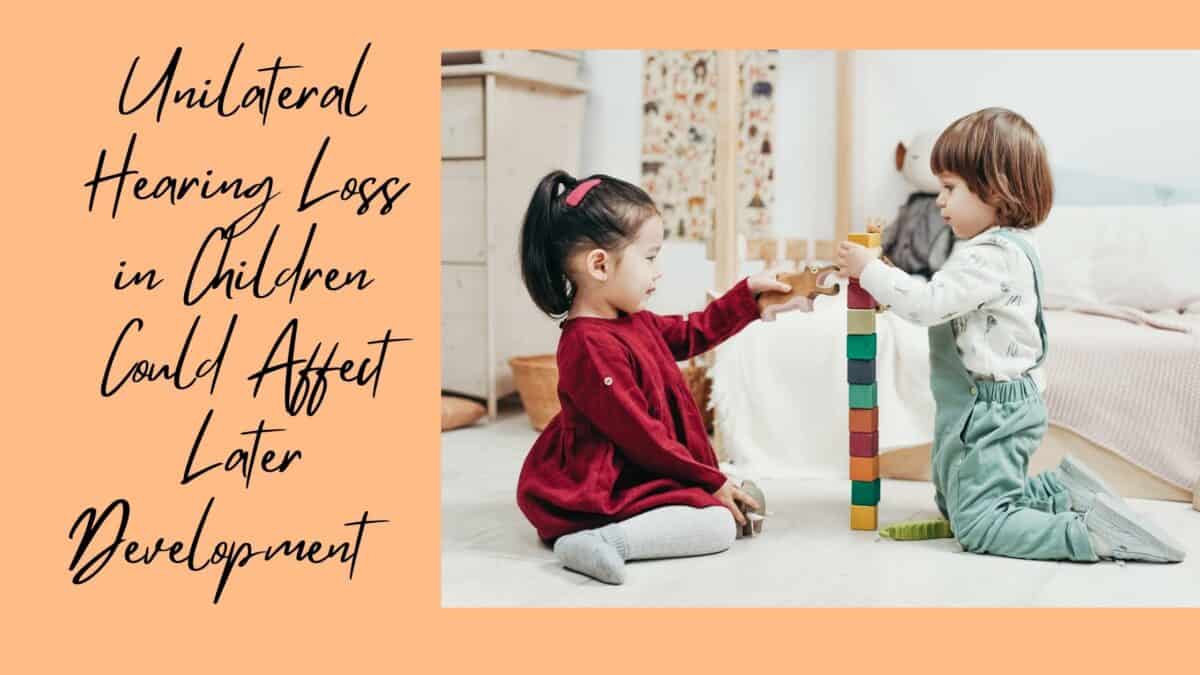In general, humans are social creatures, who rely on communication to feel inspired, engaged, and peruse new opportunities. Hearing is particularly important to infants and toddlers, contributing largely to speech development. When a child cannot hear adults speaking it inhibits their ability to learn to speak. In an educational setting, an undiagnosed and untreated hearing loss can affect their grades and success. Numerous studies have explored the effect on children when they suffer from hearing loss in both ears. Loss of hearing in both ears is called bilateral hearing loss, but new findings have found that even loss of hearing in one ear can cause significant issues.
Unilateral Hearing Loss
It is reasonable to think that bilateral hearing loss would make it difficult to connect to the world, communicate and speak. However, unilateral hearing loss – that’s hearing loss in only one ear — can also slow development in children. A recent study explored the extent that hearing in one ear can affect an individual’s socialization, language, and learning.
It is surprising to many that unilateral hearing loss would make an impact since the infant or child still has full hearing in one ear, however, the study found the children with unilateral hearing had similar limitations in speech development as the children who had bilateral hearing loss.
Studying Unilateral Hearing Loss
The study, titled “Early Prelingual Auditory Development of Infants and Toddlers with Unilateral Hearing Loss” was published in the journal Otology & Neurotology, by the Hearing Center at the West China Hospital of Sichuan University in China. They studied a test group of 167 children with three different types of hearing ability: 65 of the children had unilateral hearing loss, and 32 children with bilateral mild hearing loss. The remaining 70 children did not have any notable hearing loss at all.
They compared the speech development of these children from birth to 3 years old and found that the children with bilateral and unilateral hearing loss both had problems with identifying sound, sound discrimination, and preverbal vocalization. They also struggled with speech at an early age, leading to speech pathology issues as they progressed to an average speaking age. While the researchers expected this from children with bilateral hearing loss, they were curious as to why unilateral hearing loss would affect childhood language development.
Language Acquisition and Unilateral Hearing Loss
Language acquisition is the process by which humans acquire the capacity to perceive and comprehend language and the researchers discovered, it is not as simple as just mimicking sounds you hear at an early age. They hypothesized that the balance of hearing between two ears may contribute to language acquisition more than we have previously believed. While it could have to do with less sound received to the brain, the researchers believed it had to do with how two ears balance sound. When we hear, it is with two distinct sounds, one in each ear.
We know that two ears help our brain determine the direction a sound is coming from. Hearing sound from only one side of the body limits the amount of sound that you can hear clearly from the other side. Still, the researchers are unclear, why unilateral hearing loss could make such an impact on children.
Childhood Hearing Loss
When children are born, there are standard tests in the hospital to test hearing. The sooner a hearing loss is diagnosed and treated, the more of a chance a child has of overcoming learning disorders connected to hearing impairment. However, hearing loss can occur at any time, due to exposure to loud noise, an impact to the head, certain medications, or even chronic ear infections. Because children’s ear canals are smaller than adults it is common for them to be more prone to reoccurring ear infections which could lead to permanent hearing loss.
Testing for Hearing Loss
You must test your child for hearing loss and are aware of the signs. The sooner you catch it the greater chance you have of minimizing its effects on childhood development. If you have even the faintest hunch that your child is struggling with hearing, contact us for a hearing exam as soon as possible. We can help diagnose your child’s hearing issue and find the best solution for your family.

